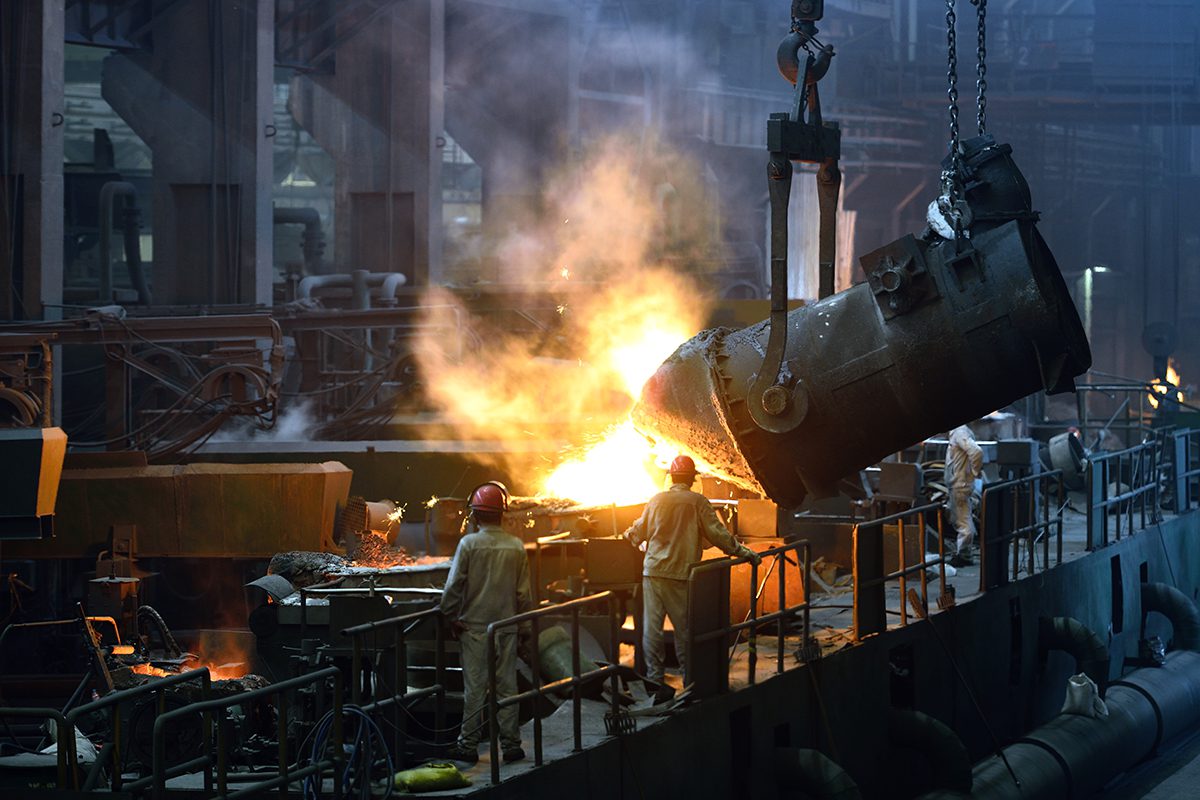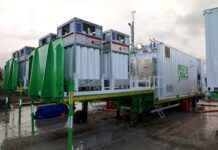
The UK steel industry must fundamentally transform if it is to remain globally competitive over the next 30 years, according to a new report (‘Steel Arising’) published by Julian Allwood, Professor of Engineering and the Environment at the University of Cambridge.
Shifting the industry away from emissions-intensive Blast Furnace production, using imported iron ore and powered by coke – and toward energy-efficient Electric Arc Furnace (EAF) production, powered by renewables and utilising the UK’s rapidly-rising volumes of scrap metal – will create new jobs in the regions and reduce emissions from the industry by up to 75%, according to the report.
Recycling today leads to less than half the greenhouse gas emissions of blast furnace steel, and with the UK’s commitment to renewables, this figure will reduce significantly in future. The UK could be a world-leader in near-to-zero emissions steel making.
The UK currently demands approximately 15m tonnes per year of steel to supply strategically vital sectors such as construction, car manufacturing and aerospace – and produces approximately 7m tonnes per year domestically. In addition, the country generates more than 10m tonnes of steel scrap every year – but less than 20% is recycled in the UK, with the rest exported mainly to Turkey, India, Spain and Pakistan for processing into relatively low-grade goods.
Recycling the strategic resource of UK steel scrap domestically could result in huge added value for UK manufacturers.
Steel is used in goods lasting, on average, 35-40 years. As a result, end-of-life scrap steel volumes will treble globally over the next 30 years. The UK is approaching the possibility of a ‘closed-loop’ system, where its annual scrap arisings will match new demand. At this point, with the right technology development, the UK can move towards meeting all its needs with no more iron ore.
Switching to more energy-efficient Electric Arc Furnaces to recycle scrap and drawing electricity from renewable sources would immediately reduce the emissions of the UK’s steel industry by half, while increasing the country’s self-reliance on a vital strategic asset which is crucial for many of our wider industries in the UK.
While much recycled steel can only be re-used in low-grade applications today – such as in construction – new technologies will enable better purification of recycled steels to allow higher-grade uses. Production of purified recycled steel is already a commercial strength in the UK and used for making some of the highest quality steels for aerospace components – the challenge will be to replicate this success at higher speed and lower cost. Investing in metals R&D could restore the UK’s position as a metallurgical leader and producer of the highest-grade next-gen metals and manufactured products.
By 2050 the UK could be substantially self-sufficient in steel, and an exporter of low-carbon, British-engineered recycled steel components across the world.
Recognising recycled steel as a significant national asset and rebasing the steel industry around recycling rather than new steel production will preserve existing jobs and create new ones, deliver a bright future for communities, and help the UK add a huge amount of value in its steel supply chain, driving economic regeneration.
Professor Allwood, author of Steel Arising, said:
“We must move our UK steelmaking industry away from primary production towards recycled steel made with sustainable power. This green steel model is the only future compatible with our goals for zero emissions, and the UK with its strong climate policy, mature stocks of steel and great history of innovation in materials science and processing is perfectly placed to be world-leading with a re-thought and sustainable steel industry.
“Not only will this create long-term green jobs, it will lead to world-leading exportable skills and technologies and allow us to transform the highly valuable scrap that we currently export at low value but should be nurturing as a strategic asset. With today’s grid we can do this with less than half the emissions of making steel with iron ore and with more renewable power in future this could drop much further.
“Investment in research and development is also vital if we are to cement the technological advantage of leading the world in up-cycling scrap steel. Half of US demand for steel is already met by internal recycling, and in the UK we could increase this figure by developing the technologies that allow us to deliver the highest grades of steel, economically, from our own scrap.
“This will not happen overnight, but the process has already begun. With private investment and government support, our steelmaking industry can once again lead the world and thrive at the same time.”
Edwina Hart MBE, Chair of the GREENSTEEL Council which commissioned the report, said:
“It’s absurd that we send almost 80% of its scrap steel abroad for recycling when it is a huge – and largely untapped – national resource. The UK steel sector can create thousands of green-collar jobs in parts of the country that need them most, helping the UK to re-establish itself as a leading steelmaking nation, known for our innovation and advanced engineering skills rather than for mass production.
“The government can help spark this steel renaissance by introducing an export tariff on UK steel scrap, supporting world-class UK research and innovation, and introducing a level playing field for energy prices, which are snuffing out efforts to boost domestic scrap recycling while offering lower rates for heavy industry.
“We, the GREENSTEEL Council, call upon industry leaders, academics, stakeholders, and community organisations to take up the recommendations of this report and help us bring about a renaissance for sustainable industry.”







